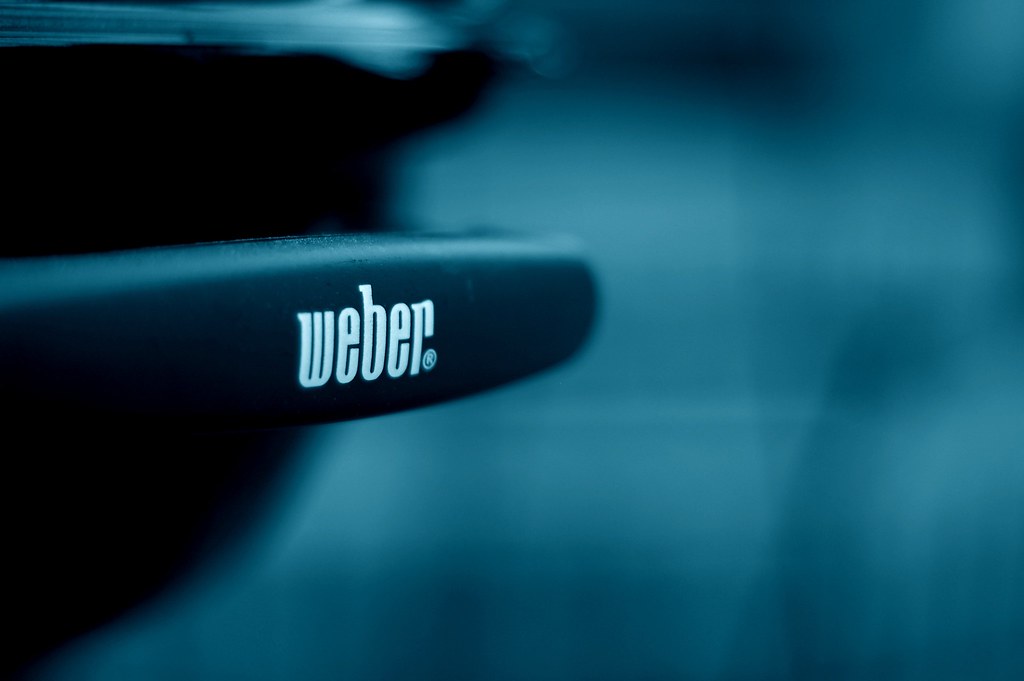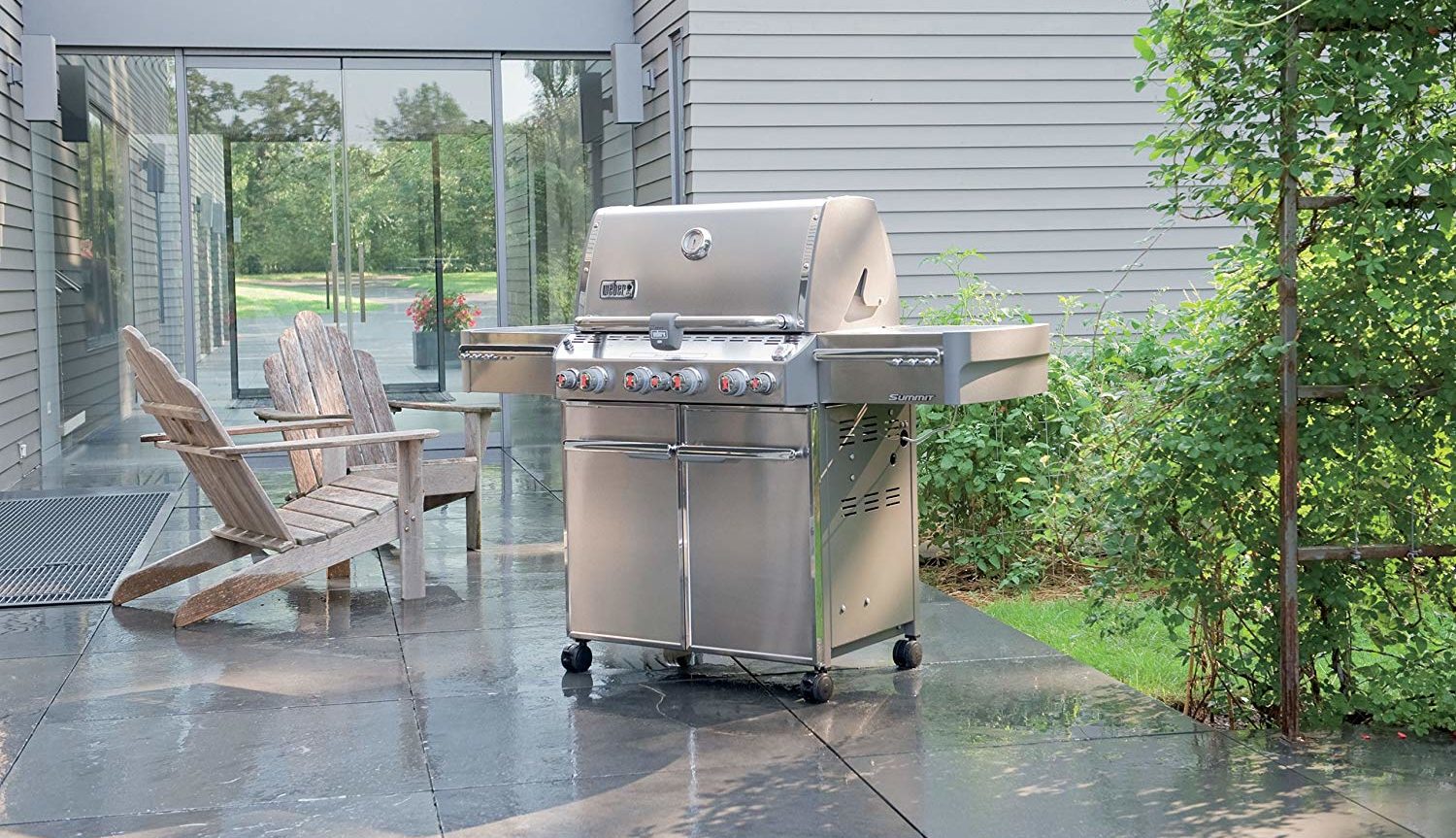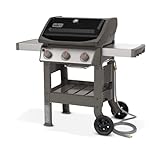
Grilling enthusiasts often wonder about the origins of their trusted equipment, particularly when it comes to iconic brands like Weber.
Weber Grills are predominantly made in the United States, with various parts sourced globally, including some components from China.
Understanding the manufacturing practices of such a renowned brand can offer insights into what makes these grills a staple in backyards across America.
Weber has a reputation for quality and durability, making it a top choice for many grilling aficionados.
Their manufacturing facilities in the U.S. are well-regarded, but like many companies, Weber sources some of its grill components from international locations, including China.
This global approach ensures a blend of tried-and-tested American craftsmanship with parts that meet specific quality standards.
The topic of where Weber Grills are manufactured ties into the broader conversation about production strategies in the modern world.
Sources from different countries contribute to the complexity and efficiency of the assembly process.
With a focus on maintaining high-quality standards, Weber’s approach reflects the challenges and opportunities in today’s global marketplace.
Historical Background of Weber Grills
Weber Grills, established in the mid-20th century, rose from humble beginnings to become a household name in outdoor cooking.
The development of the original kettle charcoal grill, invented by George Stephen Sr., was a pivotal moment for the company and remains central to its identity today.
From George Stephen Sr. to Global Brand
George Stephen Sr. was instrumental in the creation of Weber Grills.
In 1952, while working at Weber Brothers Metal Works in Chicago, he designed the first barbecue kettle using a buoy from a marine buoy manufacturing business.
This invention revolutionized outdoor cooking, providing a dome-shaped lid that trapped smoke and heat, significantly enhancing flavor.
Following its initial success, Weber Grills expanded rapidly.
The company embraced innovation and quality, solidifying its reputation in the market.
As a result, Weber has grown from a small American company to a global brand with a presence in numerous countries.
This expansion reflects its commitment to crafting durable, high-performance grills that meet the needs of outdoor cooking enthusiasts worldwide.
Evolution of the Iconic Kettle Design
The original kettle charcoal grill set the standard for modern grills.
Its unique shape allowed for more efficient cooking, as heat distribution was vastly improved.
Over the years, Weber refined the design, incorporating user feedback and technological advancements to better performance and durability.
Weber’s continuous evolution of the iconic kettle design involved the introduction of new materials and features.
These modifications kept the brand competitive and relevant, enabling it to maintain a strong market presence.
By sticking to its core principles while adapting to consumer demands, Weber has managed to retain its iconic status in the barbecue industry.
Overview of Weber’s Product Range

Weber’s line includes various grilling options such as charcoal, gas, and electric models.
Additionally, Weber offers innovative designs with advanced grilling systems and a range of special edition series that capture popular demand.
Charcoal, Gas, and Electric Models
Weber is renowned for its diverse range of grills: charcoal, gas, and electric.
The charcoal category features classics like the Smokey Joe and Jumbo Joe, perfect for traditional barbecue enthusiasts.
Gas grills include the well-regarded Spirit and Genesis series, favored for their reliability and efficiency.
Electric models such as the Q series are ideal for urban grilling where open flames might not be an option.
This variety caters to different preferences and needs, ensuring there is a Weber grill suited for everyone.
Innovative Designs and Grilling Systems
Weber continually introduces innovative designs and grilling systems.
The Genesis series includes advanced burners providing precise heat distribution.
The Summit series showcases top-tier features like rotisserie systems and smoke burners.
Weber’s SmokeFire series integrates pellet grilling, offering a new dimension in flavor and convenience.
From temperature control to fuel efficiency, these innovations enhance the grilling experience, making Weber a leader in grill technology.
Special Edition Series and Popular Models
Weber’s special edition grills and popular models cater to enthusiasts and collectors alike.
The Genesis II and Spirit series come in limited editions, boasting unique features and stylish designs that appeal to serious grillers.
Compact models like the Go-Anywhere grill provide portability without compromising on performance.
These special edition grills combine aesthetic appeal with functional features, capturing the attention of a broad audience of grill aficionados.
Manufacturing and Origin
Weber Grills has a complex manufacturing history with facilities in the U.S. and components sourced globally.
While primarily known for its American origins, concerns about parts from China have arisen due to globalization in manufacturing.
Manufacturing Processes and Facilities
Weber Grills operates manufacturing facilities primarily in the United States, particularly in Palatine and Huntley, Illinois.
These locations play a crucial role in maintaining the company’s reputation for quality.
The processes involved from design to production include strict quality control standards to ensure reliability and performance.
Facilities are equipped with modern technology to keep production efficient and consistent, allowing Weber to uphold its commitment to durability and craftsmanship.
The focus is on maintaining high standards regardless of where components are sourced.
Made in the USA vs. Global Sourcing
While Weber remains entrenched in its American roots, it also engages in global sourcing of parts.
This strategic approach allows them to integrate high-quality components from around the world.
Therefore, while many grills are assembled in the USA, some parts are globally sourced.
This hybrid model helps in optimizing both cost and quality, benefiting consumers with reliable and competitively priced products.
Weber’s commitment to manufacturing in the U.S. continually supports their workforce and local economies, reinforcing their identity as a proudly American brand despite a globalized supply chain.
Addressing the ‘Made in China’ Concern
With globalization, Weber sources some components from China.
Consumers may have concerns about quality.
However, Weber’s quality control measures ensure that even internationally sourced parts meet stringent standards.
The company transparently addresses these concerns by focusing on their rigorous inspection processes.
This ensures each grill, regardless of component origin, reflects their promise of longevity and performance.
Understanding these dynamics helps consumers appreciate the balance Weber strikes between honoring their American legacy and embracing efficient global practices.
Quality and Craftsmanship

Weber grills are noted for their attention to quality and craftsmanship.
This is evident in their choice of materials, rigorous quality control measures, and performance standards.
Materials and Components
Weber utilizes high-quality materials to ensure their grills withstand the test of time.
The grates, often constructed from cast iron or stainless steel, provide excellent heat retention and even cooking.
Stainless steel is a popular choice due to its resistance to rust and corrosion.
The grill components are built to endure prolonged usage and exposure to the elements.
These materials contribute significantly to the grill’s efficiency and user satisfaction.
Grill bodies, burners, and other parts benefit from these durable materials, enhancing both functionality and aesthetic appeal.
 A master piece of Weber’s great craftmanship is the Weber Summit S-470.
A master piece of Weber’s great craftmanship is the Weber Summit S-470.
It stands as a premium choice for outdoor cooking enthusiasts, blending cutting-edge functionality with timeless style.
Its stainless steel construction not only delivers a sleek, polished aesthetic but also ensures long-lasting durability and resistance to rust and the elements.
This grill is built to withstand years of intense use while maintaining its performance and visual appeal.
With 580 square inches of cooking space, the S-470 offers ample room to grill for family gatherings or larger parties.
The stainless steel cooking grates and flavorizer bars enhance heat distribution, ensuring evenly cooked food every time.
The material also helps retain heat for optimal searing, locking in juices and creating that perfect char.
Equipped with four high-performance burners and additional features like a side burner, sear station, smoker box, and rotisserie system, this grill offers unparalleled versatility.
The stainless steel finish extends to the burners, control knobs, and cabinet, delivering a cohesive and professional look.
Whether you’re a grill master or a weekend barbecue enthusiast, the Weber Summit S-470 offers a combination of durability, efficiency, and sophistication, making it a centerpiece for any outdoor kitchen.
Durability and Performance Standards
Durability is a cornerstone of Weber’s design philosophy.
Their grills are built to meet rigorous quality standards, ensuring consistent performance.
Whether made in the U.S. or assembled elsewhere, Weber’s commitment to longevity remains unchanged.
The stainless steel elements and other robust components endure high heat and resist damage from frequent use.
This ensures that the grills maintain optimal functionality.
Consumers recognize Weber for producing products that deliver reliable results, contributing to their trusted reputation among grilling enthusiasts.
Quality Control Across Manufacturing Sites
Quality control is a key aspect of Weber’s manufacturing process.
Stringent quality inspections are performed across all production facilities, regardless of location.
These inspections ensure that each grill conforms to Weber’s high standards.
The company employs advanced quality control techniques, maintaining consistency in craftsmanship and performance.
By monitoring production processes, Weber preserves its reputation for quality and durability.
These measures ensure that consumers receive a product that fulfills expectations, reinforcing the brand’s standing in the competitive grill market.
Technological Advancements
Weber Grills leverage innovative technologies, enhancing grilling performance and offering advanced features tailored to diverse preferences.
Their research and development efforts continue to push the boundaries of the grilling industry, integrating both traditional and new grilling systems.
Grilling Technologies and Features
Weber has incorporated GS4 grilling systems, which include upgrades like improved burners, ignition systems, and grease management, ensuring reliable performance.
Thermometers are integrated into various models, providing precise temperature control for different meats.
Electric grills and pellet grills are increasingly popular, offering alternatives to traditional charcoal and gas.
Electric grills offer easy temperature control and cleaner operations.
Pellet grills are renowned for their ability to maintain consistent temperatures and add unique flavor through wood pellets.
Grilling performance is enhanced with features like customizable cooking zones, rotisserie options, and sear stations.
These innovations cater to both novice grillers and seasoned chefs.
Attention to grilling solutions is evident in the design and durability of the products.
Research and Development
Weber continually invests in research and development to identify emerging trends and consumer needs.
This focus results in constant improvements in the functionality and aesthetics of grilling systems.
New materials and designs are regularly tested to enhance durability and performance.
Staying ahead in the grilling industry, Weber’s R&D team explores advances in heat distribution, energy efficiency, and user-friendly interfaces.
They actively work on reducing the environmental impact without compromising quality.
The company’s approach involves partnering with experts and utilizing consumer feedback to develop innovative solutions.
This commitment to innovation ensures Weber remains a leader, offering reliable and efficient grills adapted to a modern market.
Corporate and Consumer Perspective

Weber Grills maintains a strong foothold in the grill market, balancing its global distribution and brand loyalty.
The brand faces competition from the likes of Traeger Grills and other manufacturers.
There are significant legal and ethical considerations due to manufacturing practices, particularly regarding American-made products.
Market Presence and Competitor Comparison
Weber Grills stands as a prominent player in the grill industry.
Its global presence and distribution reach consumers worldwide, helping the company maintain a competitive edge.
The landscape includes other well-known brands like Traeger Grills, which specialize in wood pellet grills.
While Weber focuses on a diverse range of products, Traeger’s emphasis on technology-driven grills creates a unique niche.
In terms of market share, Weber’s long-standing reputation fosters consumer trust.
The brand is often preferred for its durability and innovation.
Competitors, including Traeger and other American-made grill companies, challenge Weber with their emphasis on specific technologies and production ethics.
Each company’s global strategy and unique selling propositions cater to different consumer needs.
Customer Satisfaction and Brand Loyalty
Customer satisfaction remains a cornerstone of Weber’s business model.
Loyal customers frequently cite the reliability and quality of their grills as reasons for continued patronage.
Weber’s ability to provide consistent cooking experiences enhances its reputation.
The company ensures that products meet high standards, which solidifies trust and promotes repeat purchases.
Brand loyalty is not solely driven by product quality.
Weber’s customer service plays a pivotal role.
The company’s focus on addressing consumer inquiries and resolving issues swiftly ensures a positive experience.
Many consumers equate Weber’s name with dependable outdoor cooking, which aligns with American-made values, despite some manufacturing being overseas.
Legal and Ethical Considerations
Legal and ethical considerations have increasingly influenced consumer perception.
Discussions around where Weber manufactures its grills have sparked interest, particularly for those prioritizing American-made products.
This interest has led to a broader conversation about transparency in production practices.
Weber faced a class action lawsuit questioning its claims about the origin of manufacturing.
The outcome emphasized the importance of clear labeling and truthful advertising.
Companies like Weber must navigate these challenges to maintain consumer trust and adhere to ethical standards.
Awareness and compliance with legal requirements are paramount for sustaining credibility in the industry.
To determine if a Weber grill is made in China, you can check the product details and packaging.
The manufacturing location is usually indicated on the grill or on the product packaging.
Check the Grill
Look for a label or sticker on the grill itself.
The manufacturing location may be listed on a label or sticker affixed to the grill.
Check the Packaging
Look for a label or sticker on the box or packaging.
The manufacturing location may be listed on the box or packaging of the grill.
Check the Model Number
Some Weber grill models have specific model numbers that indicate the manufacturing location.
For example, the Weber Spirit series grills made in China have a “3” in the first digit of the model number (e.g., Spirit 310).
Check the Weber Website
The Weber website provides detailed information about the company’s various grill models, including their manufacturing locations.
You can search for the specific grill model you’re interested in on the Weber website to determine where it’s made.
It’s important to note that not all Weber grill models are made in China.
When shopping for a Weber grill, it’s important to check the product details and packaging to determine the manufacturing location of the specific model you’re interested in.
Guiding Your Purchase Decision
Selecting the right grill is essential for those passionate about outdoor cooking and backyard barbecues.
Considering factors like build quality, country of origin, and the benefits of investing in a Weber Grill can help make an informed decision.
Factors to Consider When Buying a Grill
Evaluating the country of origin for grills and ensuring quality control are crucial aspects.
Weber grills, known for their innovative design, are primarily manufactured in the U.S., with certain models incorporating some imported parts.
 Checking the model specifics, like the Spirit II series, can provide insights into manufacturing details.
Checking the model specifics, like the Spirit II series, can provide insights into manufacturing details.
The durability of materials is another important consideration.
A grill made with high-grade stainless steel typically offers better longevity.
Features, such as the ability to serve both as a grill and smoker, maximize functionality for grilling enthusiasts.
Consider the size and capacity based on the expected number of guests.
Benefits of Investing in a Weber Grill
Weber grills have established a reputation for high standards.
Their commitment to quality and innovative design ensures outstanding performance in outdoor cooking.
These grills combine efficiency in fuel usage with consistent heat distribution, making them a favorite for backyard barbecues.
Versatility in grilling options is another advantage. Weber offers models equipped with various advanced features, catering to both traditional and modern cooking methods.
Maintenance is straightforward, attributed to robust materials and thoughtful design.
This reliability enhances long-term value, supporting the grill’s role as a staple in any outdoor culinary setting.

